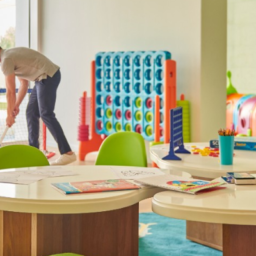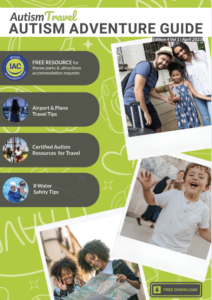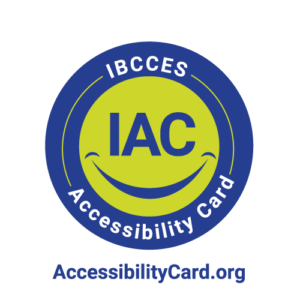
Have you ever gone to a park, restaurant, or store that claims to be “autism-friendly”? It’s quite a big statement but in a deeper context, it actually means very little to none. Families with autistic members want what’s best for their whole family and seek a place where they can be included, understood, and safe, places like that are called Certified Autism Centers™.
According to the CDC, 1 in 44 children is diagnosed with autism. Despite this disorder reaching far and wide, every autistic individual is unique, hence Autism Spectrum Disorder.
Autism-Friendly vs Autism Certified
Autism-friendly means something different to each organization about its dedication to serving autistic individuals and their families, which is a huge part of the issue.
Autism-friendly places may not have the depth of understanding about autism that every autistic person is unique. An autistic individual socializes and perceives the world differently, and each individual’s reaction can vary.
What is Autism Certified?
IBCCES realized how important it was for families to have autism-certified travel options that they could trust and feel safe, and good about. Travel is for everyone, right? According to research, stimulating activities such as travel, water, and animal interaction can be very therapeutic for autistic individuals, not to mention locations that offer sensory guides to enable guests to better plan their visit.
The IBCCES Certified Autism Center™ (CAC) program makes these opportunities possible for your family by training and equipping travel and recreation organizations to become autism certified to provide better service and assistance for autistic guests or those with other sensory sensitivities.

Advantages of Visiting a Certified Autism Center™
An “autism-friendly” destination may sound nice, but the title lacks consistent benefits and standards for autistic individuals. Certified Autism Center™, is the way to go.
A CAC location ensures that guest-facing staff are better equipped to serve and understand autistic individuals and will be able to identify their unique needs.
The ultimate benefit of choosing a CAC when traveling is that it ensures a seamless, safe, and happy experience for autistic individuals and the rest of the family, it’s a win-win.
How to Find a CAC?
Where are these CACs? Autism Travel has compiled an autism travel directory that provides a list of all CACs for convenience. But if you need help with planning your next vacation, IBCCES recommends working with a Certified Autism Travel Professional (CATP). The role of a CATP is to provide support and travel-related services for families with autistic members.
CATP’s are a wonderful travel guide. They will be happy to assist you and provide you and your family with all of the resources and help necessary to make traveling the best experience it can be.

















 IBCCES Accessibility Card Now Available as a Mobile App
IBCCES Accessibility Card Now Available as a Mobile App